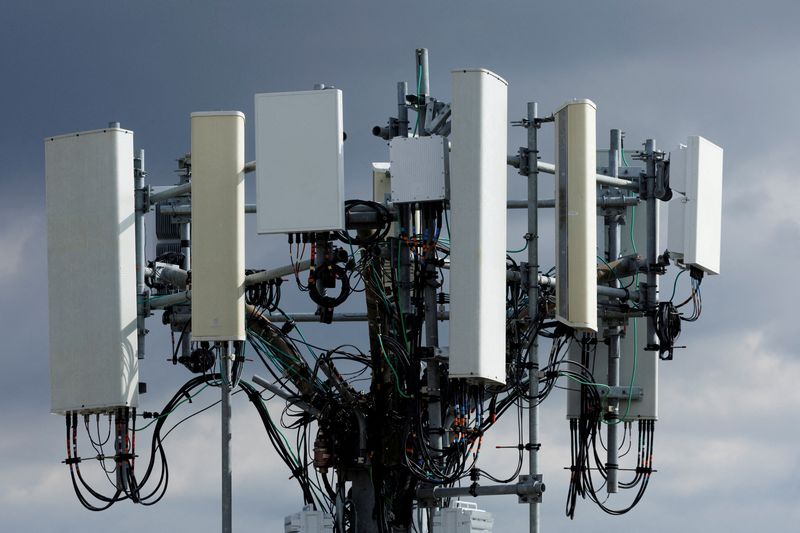By David Shepardson
(Reuters) -The Federal Aviation Administration (FAA) wants the U.S. telecommunications regulatory agency to ensure a delay in some 5G C-Band transmissions from smaller operators.
Acting FAA Administrator Billy Nolen said the agency wants the Federal Communications Commission (FCC) to mandate voluntary mitigations that AT&T (NYSE:T) and Verizon (NYSE:VZ) agreed to earlier this year mandated for 19 smaller telecoms and other spectrum holders.
In a previously unreported letter dated Friday, Nolen cited industry data established "aviation safety would be compromised if the U.S. government does not codify certain additional operating limits in the 5G C-Band environment."
The letter was sent to the National Telecommunications and Information Administration (NTIA) and FCC Chair Jessica Rosenworcel was copied. The NTIA, FAA and FCC did not immediately comment.
Concerns that the 5G service could interfere with airplane altimeters, which give data on a plane's height above the ground and are crucial for bad-weather landing, led to disruptions at some U.S. airports earlier this year.
Nolen's letter warns that without the FCC mandating the mitigations "the FAA would be forced to take immediate steps to ensure the safety of the traveling public, raising the likelihood of flight disruptions across the United States."
In June, Verizon and AT&T voluntarily agreed to delay some C-Band 5G usage until July 2023 as air carriers work to retrofit airplanes to ensure they will not face interference.
Airlines CEOs on Jan. 17 had warned of an impending "catastrophic" aviation crisis that could have grounded almost all traffic because of the 5G deployment. A deal struck shortly before a January deadline did not prevent dozens of foreign carriers from canceling international flights to the United States, and it cast the U.S. regulatory system in an ugly light.
Nolen's letter said "the aviation industry is aggressively retrofitting the current U.S. domestic and international fleets that fly in the United States" with radio frequency filters. But it added "data indicates that even retrofitted aircraft would be susceptible to interference if the report and order is not modified, resulting in renewed concerns about unsafe interference."
Earlier this year, the FAA and altimeter manufacturers divided the U.S. commercial passenger airline fleet into four groups based on their tolerance to interference.
It remains unclear if the four-member FCC has the authority to retroactively impose conditions on companies that purchased spectrum at auction or if would have the votes to make any changes.
The FAA has shrunk zones around airports where Verizon and AT&T cannot fully use towers. Verizon said the June agreement would allow it to "lift the voluntary limitations on our 5G network deployment around airports in a staged approach."

The FAA letter said the voluntarily mitigations by AT&T and Verizon "have resulted in the safe deployment of more than 50,000 wireless antennas across the nation." It noted that "the FAA has no authority" to require the 19 other spectrum holders to adopt the same precautions.
Nolen's letter seeks near-term conversations at senior levels between the NTIA, FAA and FCC.